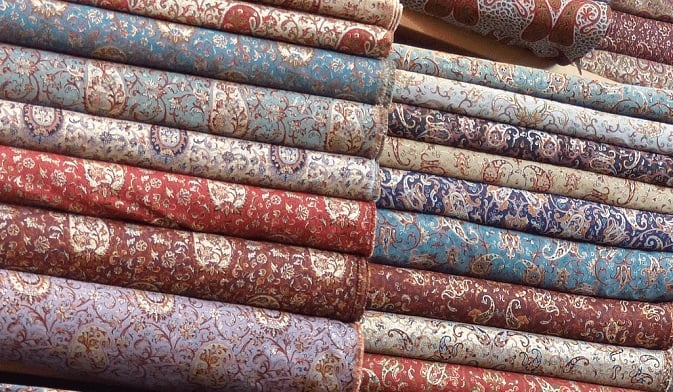Nigeria is known for its rich cultural diversity, which is reflected in the vibrant and unique fabrics used in traditional clothing.
Beyond Ankara, which is perhaps the most well-known Nigerian fabric, there are several others that you might consider incorporating into your wardrobe for a distinctive and culturally rich look. Here are six comfortable Nigerian fabrics:
Adire:

Adire is a resist-dyed fabric traditionally made by the Yoruba people in southwestern Nigeria. The process involves using different techniques like tie-dye and batik to create intricate patterns on the fabric. Adire comes in various styles and colors, making it a versatile choice for both casual and formal wear.
Aso Oke:
Aso Oke is a handwoven fabric commonly worn by the Yoruba people on special occasions such as weddings, festivals, and ceremonies.
It is characterised by its bright colors and intricate patterns. Aso Oke is often used to make traditional Nigerian attire like agbada and fila.

Lace
Lace fabrics, especially French and Swiss lace, are widely embraced in Nigeria for both traditional and modern outfits. These delicate fabrics often feature intricate patterns, making them popular choices for women’s dresses and blouses.
Brocades
Brocades are made of cotton and have beautiful designs. People stamp and beat them with clubs to make them shiny.
In Nigeria, they are known as Guinea brocade or “sheeda” in the Hausa language. People often use brocades to make loose-fitting kaftans, jackets, aso ebi styles , etc.
ALSO READ: ICYMI:10 steps to link mobile phone numbers to NIN
Velvet
Another fabric is velvet. It became really popular about three years ago and is still liked by many people. Velvet is shiny and feels furry, making it stand out.
Silk
Silk is a soft fabric in Nigeria. It feels smooth and slipperyix and looks glossy. Many Nigerians like silk because it’s gentle on the skin and very comfortable. Instead of buying ready-made silk clothes, more people now go to tailors with their unique designs in mind.
When exploring these fabrics, it’s important to understand their cultural significance and the occasions they are traditionally associated with.
Incorporating these unique Nigerian fabrics into your wardrobe not only adds a touch of cultural diversity but also showcases the rich heritage and craftsmanship of Nigerian textiles.







